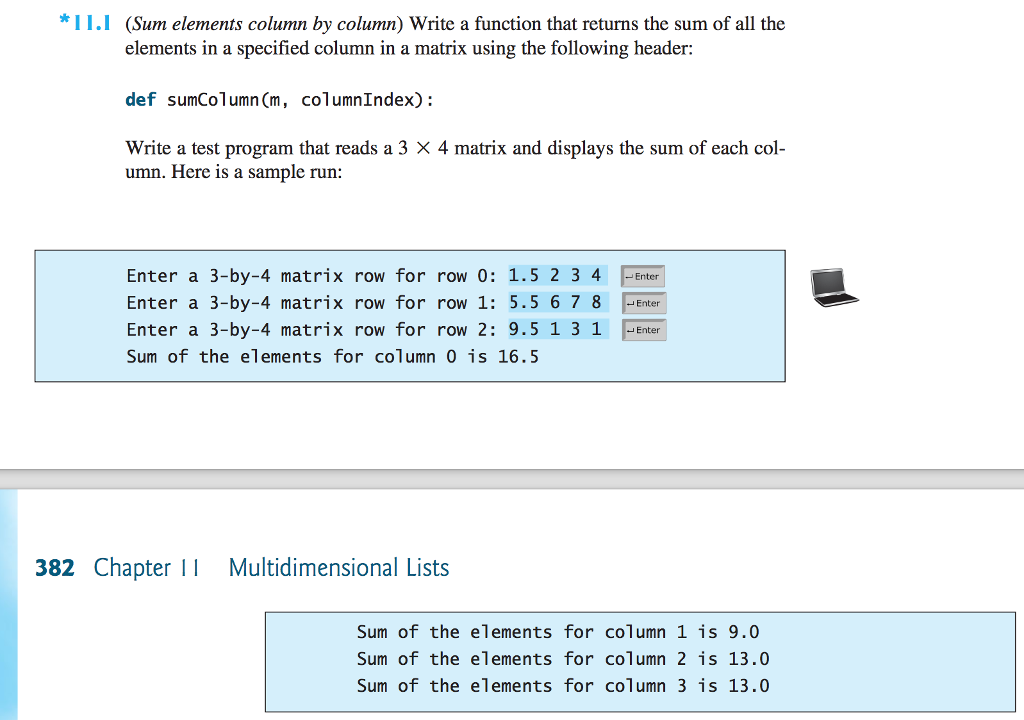
START Step 1 Take an array A and define its values Step 2 Loop for each value of A Step 3 Add each element to sum variable Step 4 After the loop finishes, display sum STOP. Long Short-Term Memory units as an activation function. Lets first see what should be the step-by-step procedure of this program. axis 1: The array is join column-wise axis 0 : The array is joined row-wise.It is defulat value of axis. axisnone: The input array is flatten before use. Refer to the Notes section of Variable for details.Ĭ() provides better performance when accumulating three or more Variables at once.Ĭoncatenated Rectified Linear Unit function. a1.an : The sequence of arraylike object.The sequence must be of same shape axis :The axis along which array is joined.It is optional parameter. Arithmetic functions ¶īasic arithmetic operations for Variables are implemented as operators. If you are implementing your own functions, please see Define your own function. Some functions may not have the corresponding FunctionNode implementation one example is (), which is defined in chainer/functions/math/average.py, which calls other wrapper functions to calculate average. In most cases, you don’t have to use FunctionNode classes directly.įor example, () is a wrapper function defined as def sum(.): in chainer/functions/math/sum.py, and it calls its corresponding FunctionNode implementation, Sum. Distributed Deep Learning with ChainerMNįunctions implemented in Chainer consists of the following two parts:Ī class that inherits FunctionNode, which defines forward/backward computation.ĪPIs listed in this page are “wrapper” of FunctionNode implementations.Traverse the array and add each element of the array with the sum variable.

You can find the sum of all elements in an array by following the approach below: Initialize a variable sum to store the total sum of all elements of the array. Share answered at 15:35 Sparafusile 4,456 6 35 53 Add a comment. Approach to Find the Sum of All Elements in an Array. To traverse the array you will use pointer arithmetic (usually adding/subtracting 1, 2, or 4) to advance the pointer to the next/previous element in the array. 1) The VSTACK function returns a single array that has the following dimensions: The number of rows: It has as many rows as the sum of all the rows of the.

If we don’t want to find the sum of each column, instead, we want to find the sum of each row we can also define that in the sum function as a second argument using an integer 2. v = Īs you can see, there are three columns in the matrix, and the output vector also has three elements that correspond to the sum of each column.

For example, let’s find the sum of a matrix using the sum() function in Matlab. For example, if we have a matrix with three columns, the output of the sum function will be a row containing three elements, and each element will be the sum of one column. In javascript, we can calculate the sum of the elements of the array by using the () method. If the input of the sum function is a matrix, then the output of the sum function will be a row vector containing the sum of each column of the matrix. For example, let’s find the sum of a vector using the sum() function in Matlab. If the input of the sum() function is a vector or an array containing numbers, the sum() function will return the output, which will be the sum of each element of the array or vector. To get the sum of each element of an array, we can use Matlab’s built-in function sum(). Get the Sum of Elements of an Array Using the sum() Function in MATLAB This tutorial will discuss finding the sum of all the elements in an array using the sum() function in Matlab.


 0 kommentar(er)
0 kommentar(er)
